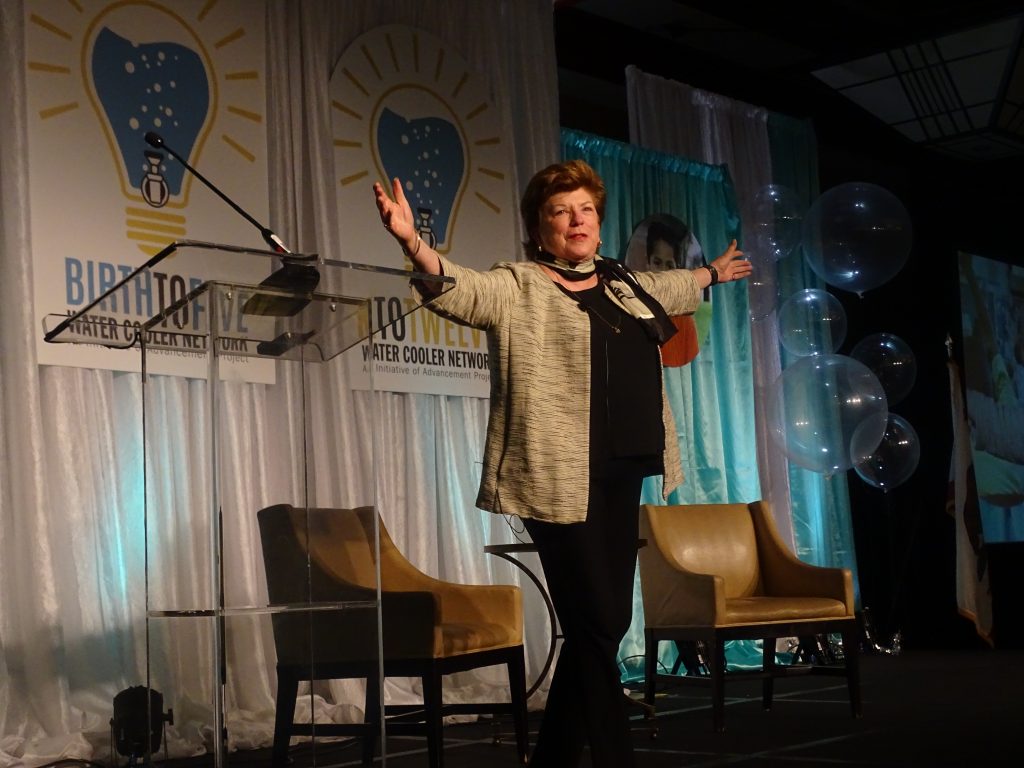
Transitional Kindergarten students in Garden Grove Unified School District benefit from a full day of high quality instruction.
Courtesy: Garden Grove Unified School District
According to a recent survey on education, overwhelming majorities of Californians think that preschool is important for student success in K–12 schools, and a strong majority supports state-funded programs such as transitional kindergarten for all 4-year-olds.
We agree. This strong preference is echoed by families in our districts clamoring for their children to participate in transitional kindergarten (TK).
California is on course to make TK a universal option for California families. Universal TK in our districts provides a full-day program with credentialed teachers and full-time aides. In 2021, the state laid out a five-year timeline to expand TK, gradually phasing in younger students each year, until 2025-26 — when all 4-year-old children will have the ability to enroll.
The intent of this foundational program is to meet a critical need for quality early learning and care for children at no cost to families. This allows parents to work full time to support their families, knowing that their children are receiving educational services that lay a foundation for academic success and support children’s development. Our districts serve distinct communities that have in common a high proportion of low-income students and significant numbers of English learners. As we shared information about the TK expansion with families, unsurprisingly, we heard from many who wanted to enroll their 4-year-old children, including young learners whose fourth birthdays fall outside the annually expanding eligibility window.
Our families urged us to accelerate the implementation of the early TK timeline and provide universal TK as soon as possible.
Recognizing our families’ significant need and the benefits of early learning, our districts decided to get ahead of the curve. We planned ahead for an accelerated two-year rollout of transitional kindergarten for students born through June 30. We knew we would not receive average daily attendance (ADA) funding for students whose birthdates fell outside the state’s rollout plan, but as we were planning well in advance of the 2023-24 school year, we were unaware of any penalties for early rollout as they did not exist at that time. We budgeted accordingly for the expansion of our enrollment and made plans to staff our TK classrooms months in advance of school starting.
Our districts are now facing penalties in the millions of dollars for taking these proactive steps. And we are not alone. Based on a voluntary informal survey, seven of 28 districts in Orange County likely face penalties for accelerated implementation. We believe many districts across the state are similarly impacted, with some yet unaware of the fiscal hit for early expansion.
Last July — months after districts started planning for the 2023-24 school year — Gov. Gavin Newsom signed education budget trailer bill SB 114, which created new statutory requirements for the 2023-24 and 2024-25 school years for school districts offering early transitional kindergarten. These changes included a maximum class size of 20 students and a 1:10 adult-to-student ratio, which is smaller than regular TK ratios. No additional funding was provided to meet these new requirements. The trailer bill imposed significant fiscal penalties for districts if they did not comply with the new provisions.
Districts like ours were not able to meet the lower class size requirements because the school year was weeks away from starting when this bill was signed. We had no time to change course. Many families in large urban districts like ours are most in need of TK due to families’ inability to afford private preschool and lack of free preschool options. Turning away families who had enrolled their child in TK and who desperately needed this care was unthinkable.
School districts plan and budget — inclusive of staffing, facilities and bargaining — at least nine months in advance of the next school year, which typically begins in early or mid-August. This includes communicating with families so they can make plans for their children, and enrolling students in January and February for the following school year. This is necessary so that schools will be appropriately staffed and classrooms are ready before the first day of school.
The steep fiscal penalties we face for early enrollment in TK threaten our fiscal outlook in a budget year that is already anticipated to be lean.
There is an opportunity to make this right.
The Legislature and Newsom administration can waive the current year, 2023-24 fiscal penalties and allow districts appropriate time to plan and implement requirements for 2024-25. Actions can be taken via legislation — Assembly Bill 2548, authored by Assemblymember Tri Ta, would waive the current school year penalties on districts offering early TK; another option is to enact the waiver for 2023-24 through budget trailer bill language. We, and more than 40 leaders of districts and county offices of education, are urging lawmakers to take action now.
The districts that are impacted by penalties for early enrollment in TK serve high-poverty communities where free or low-cost full-day preschools are not available and parents cannot afford paid preschools.
Making early TK available to as many families as possible is the right thing to do. Approving the waiver of the fiscal penalties for 2023-24 will save our districts from millions of dollars in penalties and protect our fiscal stability while we continue to make great strides in serving early learners.
•••
Gabriela Mafi is superintendent of the Garden Grove Unified School District.
John Garcia is superintendent of the Downey Unified School District
The opinions in this commentary are those of the authors. If you would like to submit a commentary, please review our guidelines and contact us.


